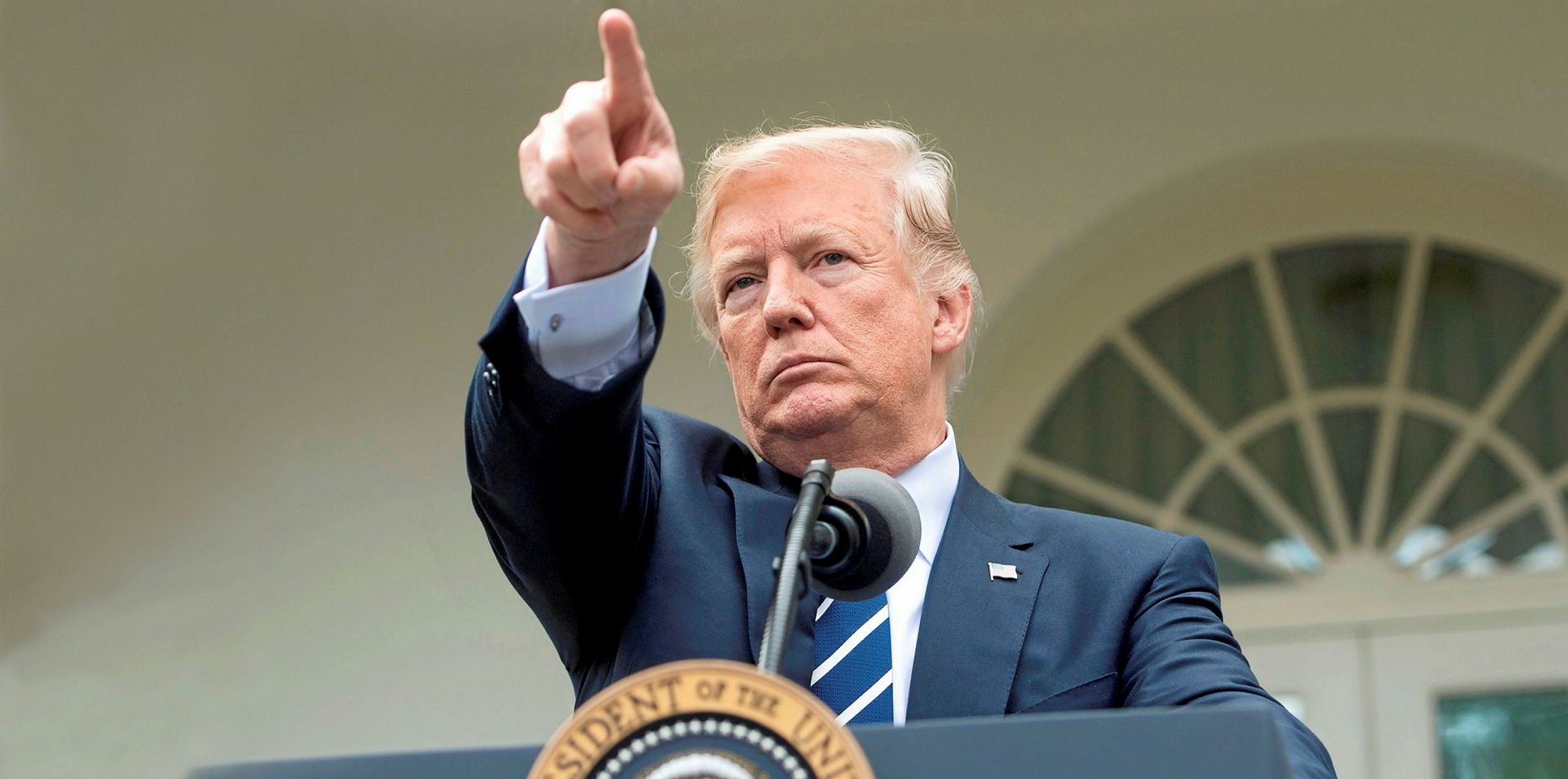US shipping regulation needs to align itself with the international safety and environmental maritime conventions if US President Donald Trump wants to achieve his goal of improving governmental efficiency and reducing the regulatory burden, according to the International Chamber of Shipping (ICS).
The leading shipowners' association has written to the White House’s Office of Information and Regulatory Affairs (OIRA) in response to a call for suggestions on how the US can adjust shipping regulation to improve efficiency and cut costs.
OIRA's move is aimed as a first step to apply president Trump’s January 2017 executive order of “Reducing Regulation and Controlling Regulatory Costs” to the maritime sector.
In a written submission, ICS deputy secretary general Simon Bennett pointed out that international maritime trade is “indispensable” to the American economy and that US regulation “should take into account the need for a competitive, flag neutral, safe, secure and environmentally conscious maritime transport system”.
He said that the US needs to recognise the “primacy” of international regulatory bodies and the IMO in regulating the global maritime industry.
“We also note that implementation of global regulations and standards minimise the operational costs of international shipping, which in turn leads to lower transport costs of imported goods carried by ships to and from the US, for the benefit of the US economy,” Bennett said.
He suggested that the US review its current maritime regulation with a view to aligning it with the international conventions.
Areas for improvement
The ICS has identified four key areas in which it believes the US should sync its unilateral regulation with the international standards, including ballast water, air pollution, shiprecycling and the control of anti-fouling systems on ships.
It said the US ballast water regulation applies different type approval standards for ballast water treatment systems to the IMO’s global standard. It said this is creating problems for shipowners in selecting equipment.
It also noted the differing approaches to vessel discharge adopted by the US regulatory bodies such as the US Coast Guard and the Environmental Protection Agency.
There are further differences between federal and state ballast water treatment standards creating an “overlapping patchwork of federal requirements, along with conflicting individual state regulations”, the ICS said.
The group also pointed to problems over the US' use of the Basel Convention to manage the export of hazardous waste at a time when the international shipping industry is moving towards the international standards laid out in the Hong Kong International Convention for the Safe and Environmentally Sound Recycling of Ships.
The ICS also took issue with US seafarers’ shore leave visa system, which covers only 29 days and will not allow an extension if the ship is in port for more than one month.
In such circumstances, seafarers are denied shore access, forcing them to go to a non-US port to be repatriated and require a special permit and the accompaniment of a law enforcement officer to seek medical treatment.
The US was also urged to take a more active role in the IMO discussions on reducing global greenhouse emissions from ships. The US said it had reservations over an IMO agreement struck earlier this year to halve shipping's CO2 emissions by 2050.
The ICS said that the US “should consider removing its reservation on the recently agreed IMO strategy and actively participate in future IMO work on further development of the strategy, including the upcoming discussions on short, medium and long-term measures later this year".





